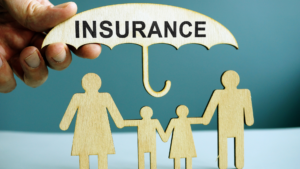Insurance companies often claim they protect drivers in all situations, but certain drivers are known to be more likely to be involved in a vehicular accident. If you’ve never been in an accident of your own and aren’t involved in any accidents in the past five years, you may still be at risk of being in one. In some situations, insurance companies may pay the other driver’s damages (and your own) since some are more likely to have an accident involvement when other drivers are at fault.
In the unfortunate event of a vehicular accident, having insurance can be a crucial lifeline. If you find yourself as an injured third party and the first party’s insurance company fails to compensate you for your injuries, you may have the option to make an entitlement against the other driver’s insurance. Seeking legal guidance is paramount in such situations, and contacting a reputable law firm can provide the expertise needed to navigate the complexities of insurance claims. A firm like Schuerger Shunnarah Law that specializes in handling cases related to personal injury can assist you in understanding your rights and pursuing the compensation you deserve. It’s essential to have a knowledgeable legal team on your side to ensure that you receive the support necessary during the aftermath of an accident.
There are a lot of things you should know before you start making a privilege against someone else’s insurance. Here are a few of the things you should know: The insurance company will first try to solve the claim at a cost to you. This is called their “C.O.D” – or “Closing Order.” The company will try to find ways to lower the amount they have to pay. This is called “deductible.” You will have to prove your claim – this is called “facts and circumstances.” You will have to prove the amount of your claim is covered by the insurance company. This is called “unequal benefits.” You will have to prove your claim is not “contributory.”
Insurance claims are a necessary part of being a good driver, and when an accident occurs, it may be necessary to file a claim to try and recoup your losses. Sometimes, the insurance company will ask questions about the accident and its cause, hoping to find out who was at fault so they can submit a claim. Did you brake too hard because you were distracted? Did you hit the car in front of you because they cut in front of you? Did you run a red light?
When you get into an accident, there are a lot of professionals that you will have to deal with. Those would typically include the police, medical personnel, Arlington Heights personal injury attorneys (or similar experts in your area), and the insurance company. For most people, these are the experts to call, as they can help guide both parties to navigate the post-accident scenario, be it with regard to incident reporting, injuries, compensation, or legal help.
What should we do to claim against someone else’s insurance?
If you have ever made due against someone else’s insurance policy, you will know how stressful it can be. You can do many things to help the process along, but it can be hard to keep up with the procedures. We have put together this guide to help you make your claim; it will give you all the information you need and help you prepare yourself for the next stage.
When you buy insurance, you are required to sign a document that states you have read and understand the terms. This document is called a rider or policy rider. However, sometimes riders are never actually read or understood by the policyholders, so we can’t make a right against someone else’s insurance. As such, if you want to make a prerogative against someone else’s insurance, it is your responsibility to ensure that the policy has been read.
There’s always a chance that you’ll find yourself in a situation where you have been injured in a vehicular accident caused by another driver. You will have to follow a specific path to decide what to do when that happens. It’s important to ensure you’re covered during these times.
It’s important to understand that when your car insurance provider pays for damages to your vehicle as a result of an accident, you are covered for these damages. However, when it comes to personal injury claims, you have to make sure that the other driver’s insurance company pays for your damages.




